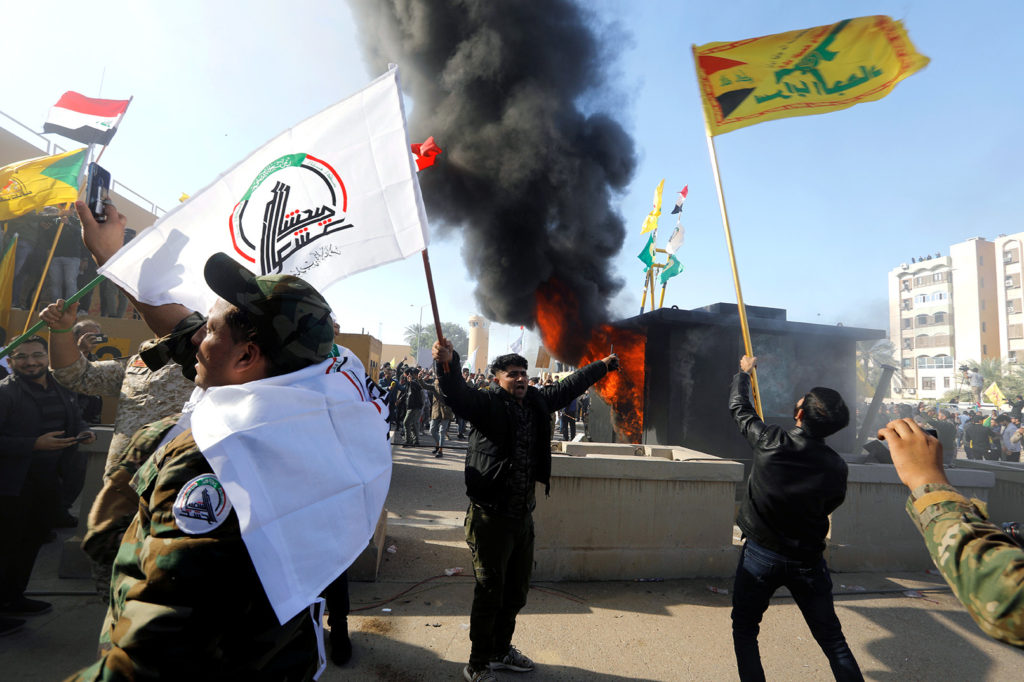
VATICAN CITY (CNS) — Pope Francis led pilgrims in prayers for peace as tensions between the United States and Iran escalated following the assassination of a top Iranian general.
Several days after Ayatollah Ali Hosseini Khamenei, Iran’s supreme leader, warned of “harsh retaliation” for the Jan. 3 U.S. drone attack that killed General Qassem Soleimani, the pope said that “a terrible air of tension is felt in many parts of the world.”
“War only brings death and destruction. I call on all parties to keep alive the flame of dialogue and self-control and avoid the shadow of enmity,” the pope said after praying the Angelus prayer with pilgrims gathered in St. Peter’s Square Jan. 5.
He then led the pilgrims in a moment of silent prayer so “that the Lord may give us the grace” of peace.
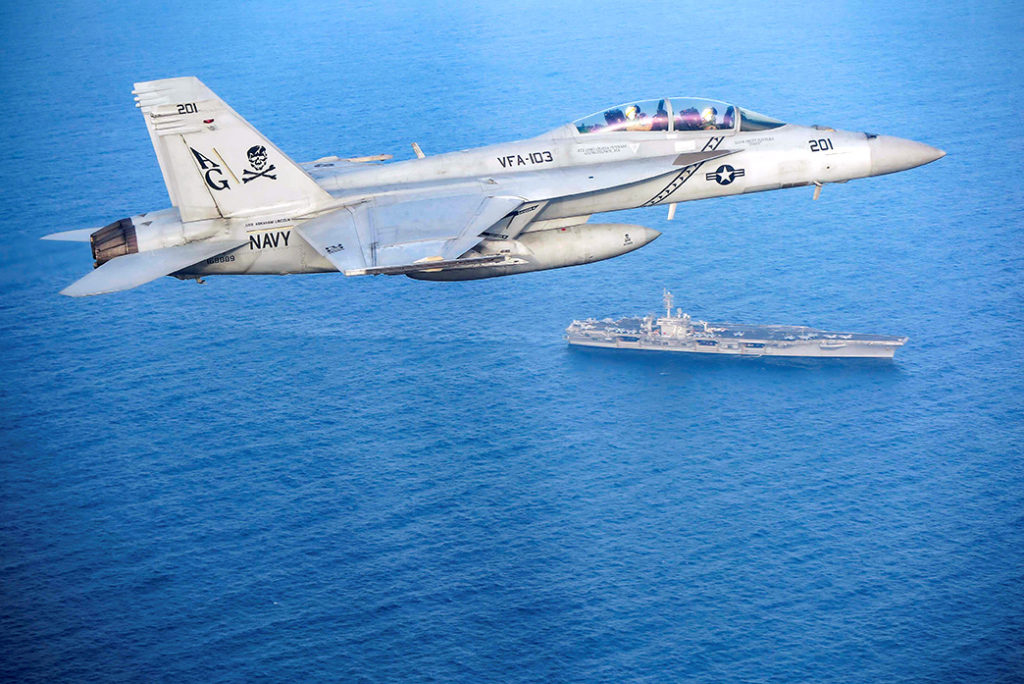
The drone strike, which killed Soleimani and six other people, including an Iraqi militia commander, caused a sharp escalation in already tense relations after President Donald Trump pulled out of nuclear deal with Iran last year.
The drone attack was the lead news story in L’Osservatore Romano, the Vatican newspaper, Jan. 3: “The raid last night was only the latest episode in a long escalation of tensions culminating in the attack Dec. 31 of a crowd of demonstrators on the U.S. Embassy in Baghdad.”
Iraqi Cardinal Louis Sako, patriarch of Chaldean Catholics, said “Iraqis are in a state of shock” following the U.S.-targeted killing in Baghdad of Iran’s top general, Qassem Soleimani.
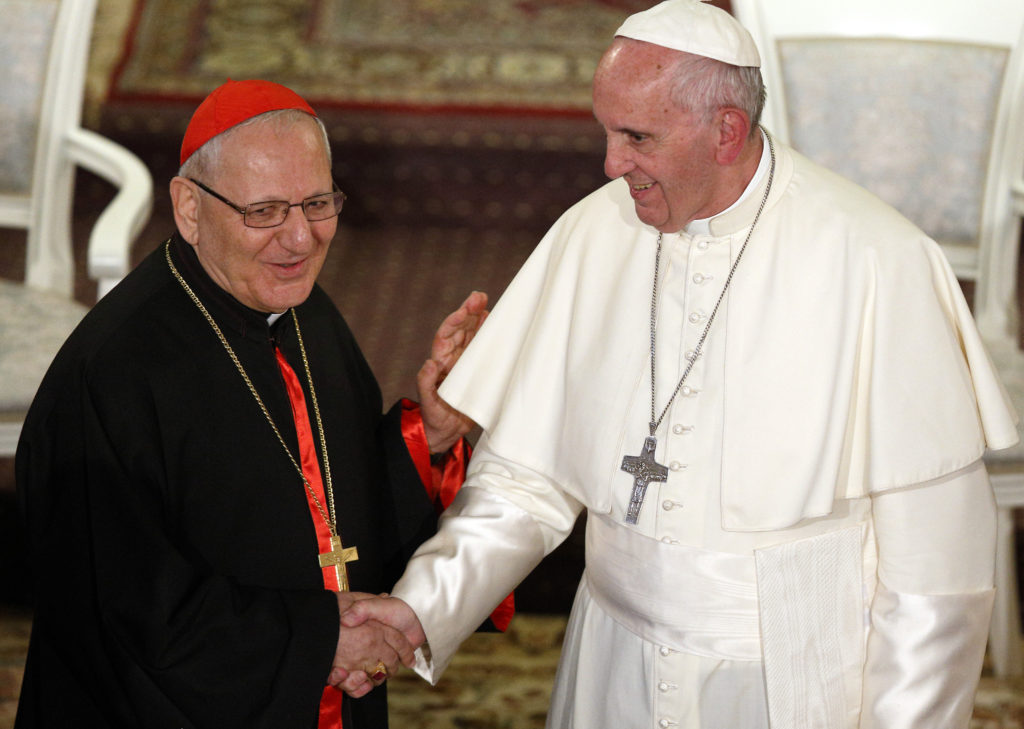
“It is unfortunate that our country turns into an arena for settling scores, rather than being a sovereign homeland, capable of protecting its land, wealth and citizens,” Cardinal Sako said from Baghdad Jan. 4.
“In the face of this sensitive and dangerous situation, we call on all the parties concerned to exercise restraint, show wisdom and act rationally, and (to) sit at the table of dialogue and understanding to spare the country the unimaginable consequences,” Cardinal Sako said.
“We raise our prayers to God Almighty in order for life to return to its normal course, and (for) Iraq and its people (to) enjoy peace, security and goodness,” he said.
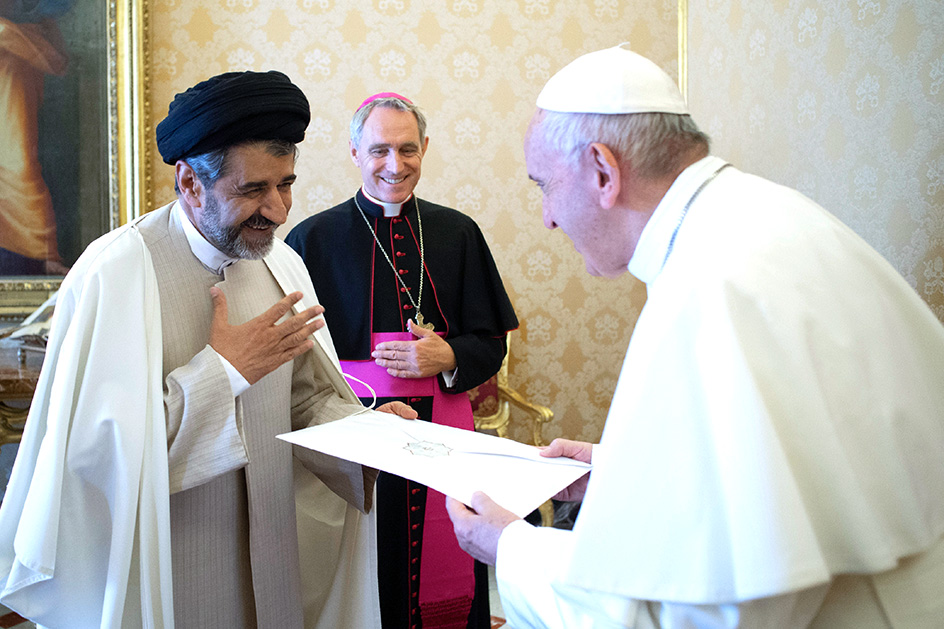
Speaking to Vatican News Jan. 3, Archbishop Leo Boccardi, apostolic nuncio to Iran, said the assassination “creates apprehension and shows us how difficult it is to build and believe in peace.”
“The appeal is to lower tension, to call everyone to negotiation and to believe in dialogue knowing that, has history has always shown us, that war and weapons aren’t the solution to the problems afflicting the world today,” Archbishop Boccardi said.
In an interview with CNN, U.S. Secretary of State Mike Pompeo defended Trump’s decision and said that Soleimani “was actively plotting in the region to take actions, the big action as he described it, that would have put dozens if not hundreds of American lives at risk. We know it was imminent.”
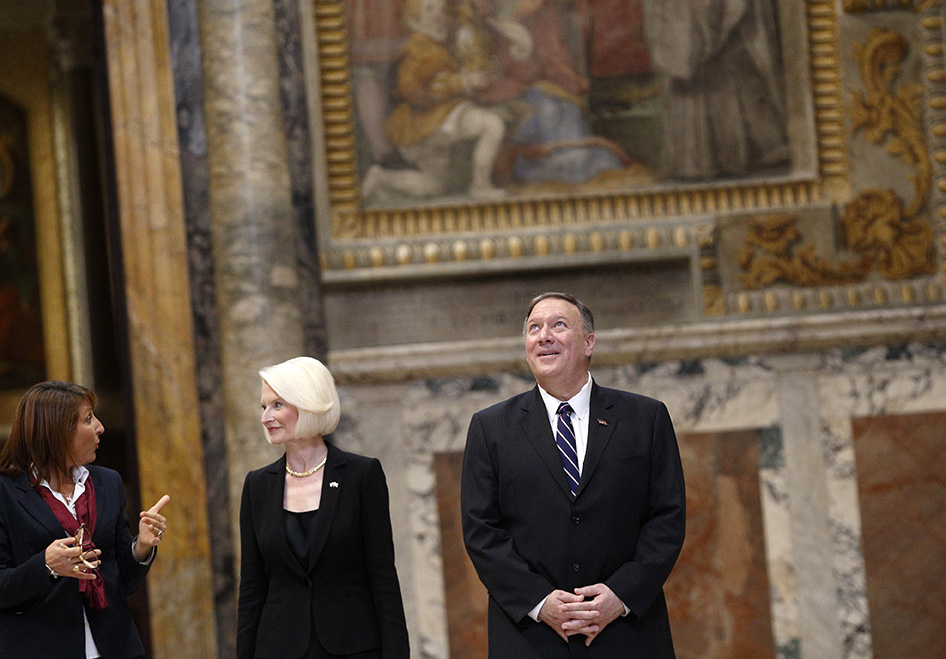
Shortly after the Iranian general’s death, the United States deployed an additional 3,000 troops to the Middle East to stave off any retaliatory attacks against forces in the region.
Meanwhile, the U.S. Embassy in Baghdad issued a security alert telling Americans to “depart Iraq immediately, via airline while possible, and failing that, to other countries via land.”
Analysts say Soleimani was a “much more powerful figure” than former al-Qaida chief Osama bin Laden or Abu Bakr Baghdadi, the now-deceased leader of the so-called Islamic State.
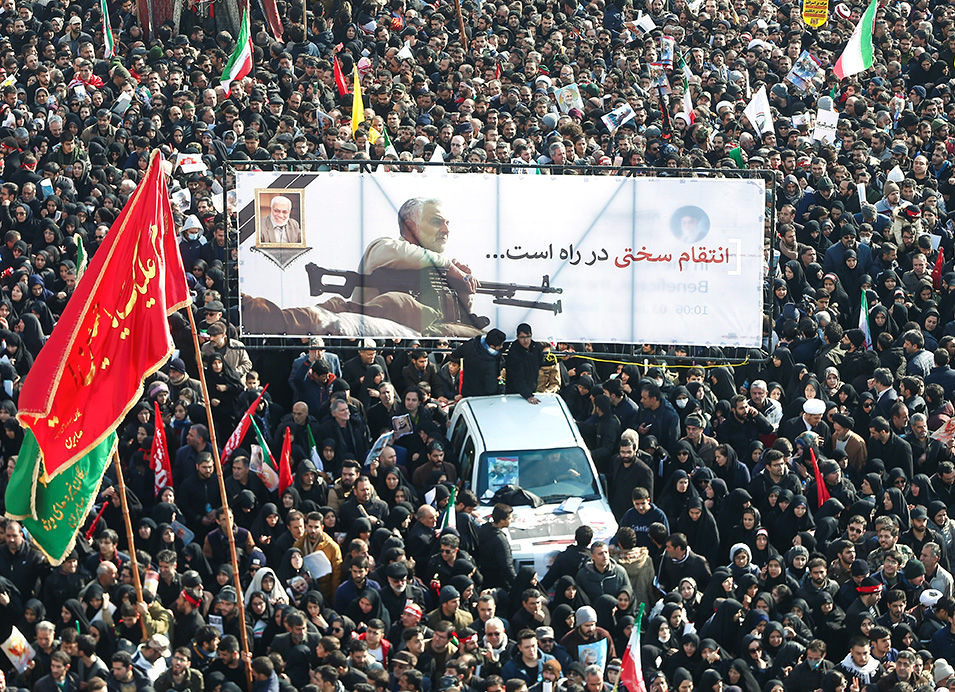
The Soleimani killing was sparked by a series of escalating attacks between the U.S. and Iranian-backed forces. It began with the Iranian-backed Iraqi Shi’ite militia Kataeb Hezbollah’s firing of 31 rockets into a base in Kirkuk province Dec. 27. The attack killed an American contractor and wounded several U.S. and Iraqi servicemen. In response, the U.S. bombed five of the militia’s sites in Iraq and Syria. Militia supporters retaliated by setting fire to the wall and attacking the U.S. Embassy in Baghdad.
However, the attack was seen by world leaders as an unnecessary provocation that could further destabilize the Middle East.
On Jan. 5, the Iraqi parliament approved a resolution calling for the withdrawal of U.S. troops from Iraq.
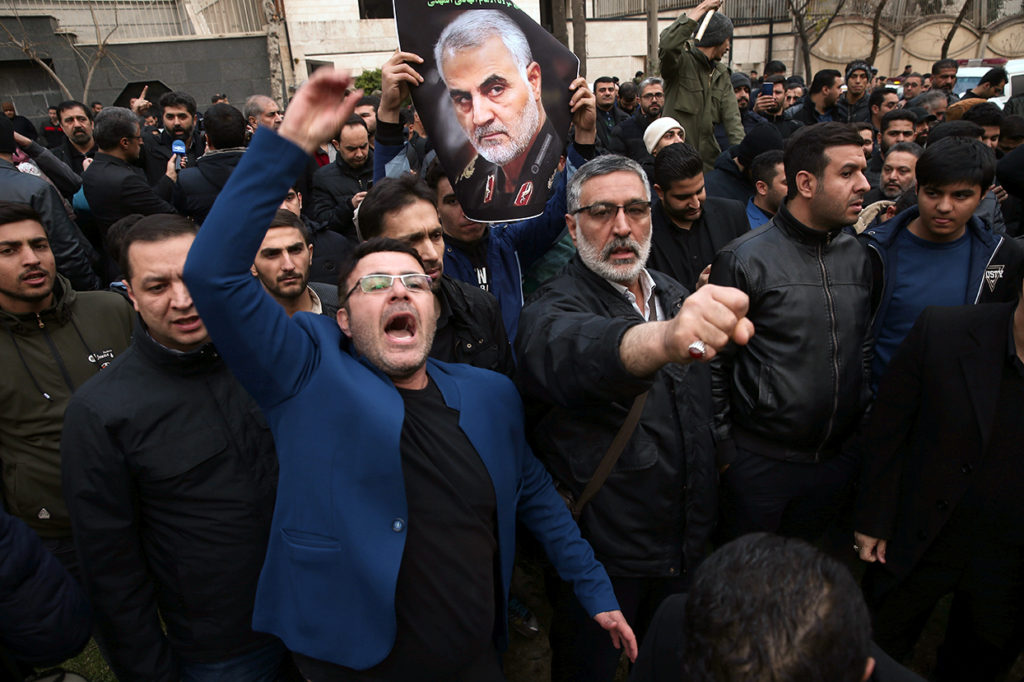
Adel Abdul-Mahdi, Iraq’s outgoing prime minister, called for the emergency session, saying the U.S. presence there is limited to training forces to fight terrorism. He described the attack that killed Soleimani as a “violation” of conditions for the U.S. troop presence.
The World Council of Churches appealed for all sides to “exercise maximum restraint, to refrain from further escalation, and to give priority to the welfare of all people of the region, and their right to peace and stability after so many years of violence and bloodshed.”
“Gen. Soleimani was no innocent victim of war, having been the architect and promoter of armed violence in many parts of the region, but this attack and anticipated reactions to it threaten even wider and more disastrous conflict in the region,” said the Rev. Olav Fykse Tveit, WCC general secretary. “As destabilizing as Gen. Soleimani’s activities have been, the consequences for the people of the region of more intensive conflict are incalculable.”
— By Junno Arocho Esteves, Dale Gavlak and Doreen Abi Raad, Catholic News Service.






